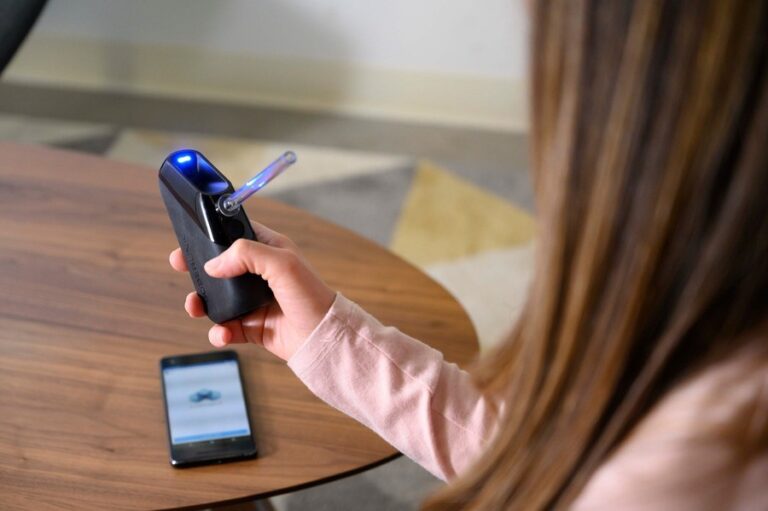
Smart devices have changed how people track their health, from wearable fitness monitors to sleep-tracking apps and blood glucose sensors. What was once limited to static measurements has now expanded into real-time, personalized feedback. With the growing integration of machine learning, these tools are becoming even more responsive, learning from users’ behavior, adjusting to changing routines, and offering meaningful guidance throughout the day. These systems analyze what’s happening, recognize patterns, and offer suggestions that fit the moment. Joe Kiani, founder of Masimo and Willow Laboratories, has spent decades building technologies that improve patient monitoring without adding complexity. His newest venture, Nutu™, is a digital health platform developed by Willow Laboratories to help individuals adopt healthier behaviors and proactively reduce the risk of Type 2 diabetes.
By pairing familiar devices with intelligent systems, users can move from tracking their health to actively shaping it. These tools meet people where they are, in their routines, habits and everyday environments, to provide timely, useful, and personal feedback.
Learning From the Day-to-Day
Smart devices have always been good at collecting data. Steps taken, hours slept, and heart rate variability are all numbers that help people understand different aspects of their wellness. But those numbers mean more when connected and interpreted. Machine learning helps fill that gap by analyzing these readings together. Instead of treating each data point separately, Nutu learns how they relate. That relationship might show how sleep impacts focus, how meal timing affects blood sugar, or how a stressful day changes heart rate patterns.
As people use the system, feedback becomes more tailored to their needs. A person who tends to sleep less on weekends, for example, may receive an early reminder to wind down or hydrate before bed. These small nudges help the user stay consistent, not through rules, but through awareness. The goal isn’t to predict every outcome. It’s to support daily choices with relevant and realistic insight.
Custom Feedback for Individual Routines
People often try to follow general health advice, but their bodies respond in personal ways. Some thrive on early morning workouts, while others find evenings more effective. Meal choices, work schedules and family needs all play a role in how someone manages their health.
Machine learning makes it easier to support diversity. It tracks not only what a user does but also how that routine affects how they feel and function. Over time, the system picks up patterns that repeat and can suggest small adjustments that better fit the person’s lifestyle. This feedback might take the form of a daily recap, a suggestion to shift timing, or an alert when something appears off. Instead of offering one-size-fits-all tips, the device reflects the person’s actual behavior and outcomes. That kind of alignment builds trust. When feedback feels familiar and useful, users are more likely to act on it.
More Support in Real Time
Living in a healthy condition or trying to maintain better habits isn’t always predictable. Plans change, sleep gets interrupted, or meals don’t go as scheduled. Smart devices with machine learning help manage those changes by offering support in real-time. Whether it’s a prompt to take a break after a long period of sitting or a suggestion to eat sooner based on a drop in energy, these systems are designed to observe and respond. Their goal isn’t to control behavior but to help users notice patterns and make informed choices.
For people managing chronic conditions, this real-time insight helps keep routines on track and reduces the chance of surprises. Even when the day doesn’t go as planned, the system adjusts alongside the user and offers steady input. Over time, this consistency creates a feeling of partnership, not between doctor and patient, but between person and technology that understands their needs.
Joe Kiani, Masimo founder, says of Nutu, “Some of the early users that have been giving us feedback are saying really positive things about what it’s done for them.” It isn’t about offering perfect answers. It’s about giving people small, steady insights that add up over time. That kind of support helps reduce the pressure to get everything right and shifts focus to making progress day by day. As these tools become more common and intuitive, people can move from simply tracking their health to shaping it with support that fits into real life, adjusting changes, and keeping them moving forward.
Bridging the Gap Between Data and Action
Many users find that collecting health data isn’t the hard part, but knowing what to do with it is. Charts and numbers may show what happened, but they don’t always explain what should happen next. Machine learning helps turn that data into action. It makes suggestions, sets reminders, and helps highlight patterns that might otherwise go unnoticed. Some systems include coaching features or connect to healthcare providers, offering another layer of support when needed.
That translation, from information to insight, is what makes these tools useful. Instead of being overwhelmed by charts, users can focus on the decisions that matter now. Whether it’s encouraging better sleep, balancing activity, or managing energy levels, the focus stays on what helps the person feel better day after day.
Built With Simplicity and Safety in Mind
As smart devices grow more powerful, developers are focused on keeping them simple and safe to use. Users should be able to understand what the device is tracking, how feedback is generated, and how their information is stored.
Machine learning models must also work for people across different lifestyles, ages, and experience levels. Tools that are easy to use and visually clear help more people stick with them and benefit from their guidance. Privacy settings, clear alerts and flexible options allow the user to remain in control. Even as the device becomes more intelligent, the user decides what’s shared, what’s tracked, and how feedback is delivered. Keeping systems transparent ensures that users feel respected, not monitored.
Helping People Shape Their Health
The promise of smart devices powered by machine learning is simple. They help people better understand their health, not just as numbers, but as patterns that can guide better decisions.






